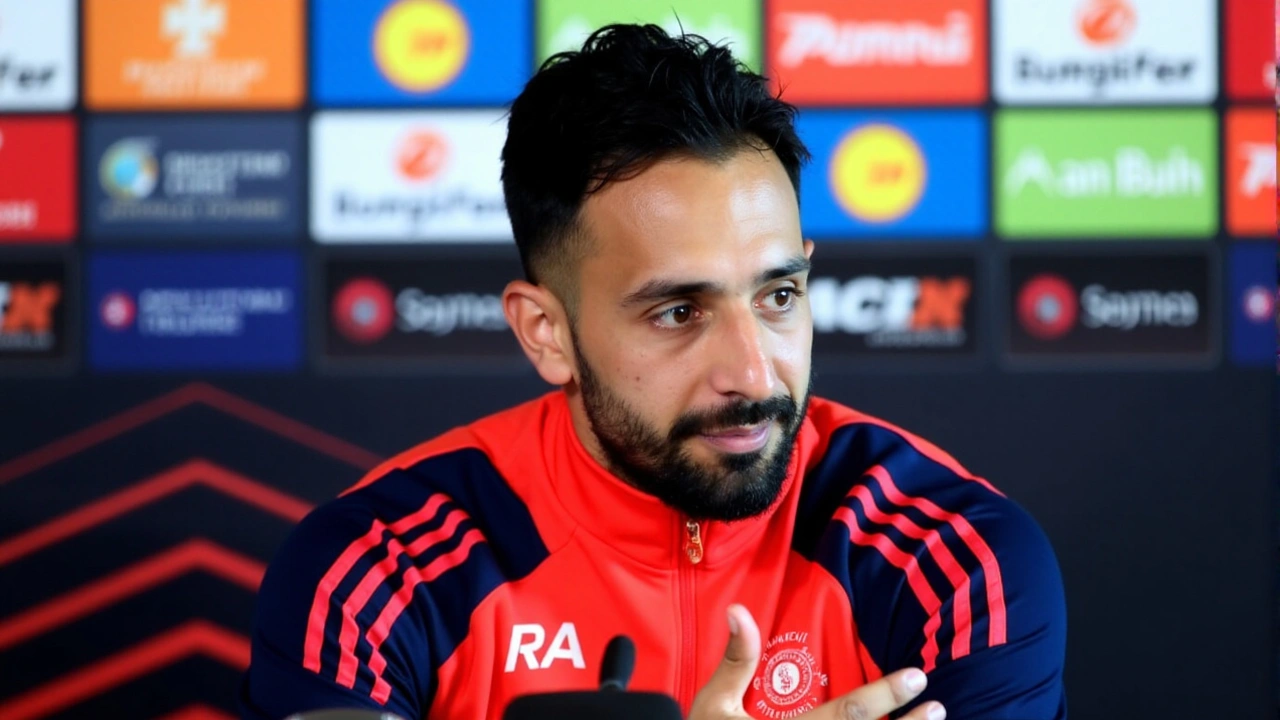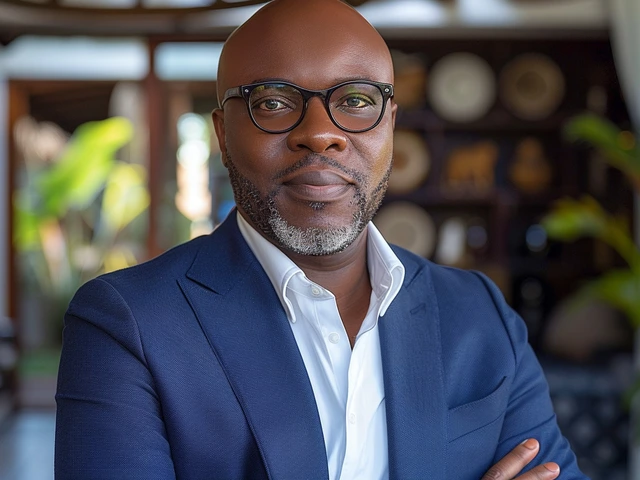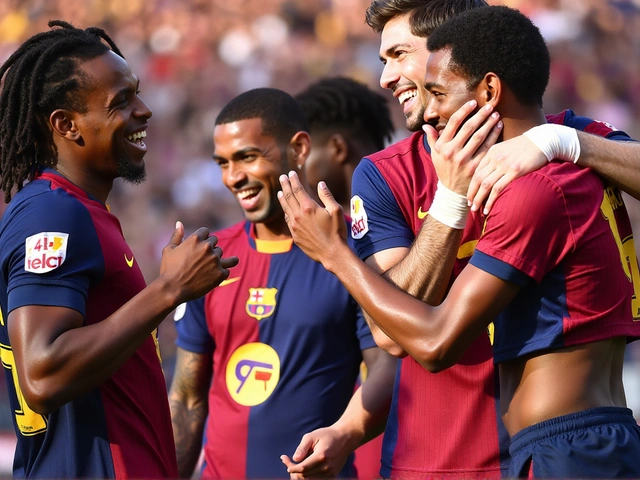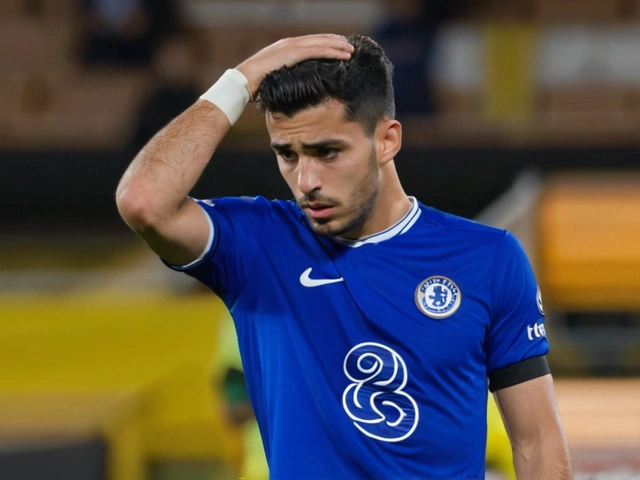Ruben Amorim Expresses Concerns on Manchester United's Scoring Challenges Ahead of Key Europa League Match

Understanding Manchester United's Goal Scoring Woes
Ruben Amorim, a manager known for his tactical acumen and strategic play-making, has recently voiced concerns regarding Manchester United's lack of clinical finishing ahead of their critical Europa League clash with Bodø/Glimt. In a pre-match press conference, Amorim articulated that the team's struggle to find the back of the net is not just a fault of the attackers but a systemic problem that requires a wider team-based approach. He indicated that the entire team's dynamics need to adapt to his preferred tactical system, something he admits will not happen overnight.
For a club with the stature of Manchester United, goal-scoring should ideally be an innate quality woven into the fabric of their gameplay. However, as pointed out by Amorim, the issue is more profound, reflecting the need for tactical transition and the capability of each player to contribute to the offensive thrust. Amorim's emphasis is on the holistic improvement of team performance rather than focusing exclusively on the strikers.
The Importance of Tactical Adaptation
Amorim highlighted that the transition to his style of play involves substantial adjustments, and these alignments require time. He suggested that the team must evolve with a broader vision in mind. Adapting to new styles and approaches is challenging, especially in high-press environments like the Europa League. Yet, Amorim remains optimistic about the prospects, citing the players' aptitude and learning capacity. His statements are a stark reminder of the intricacies involved in implementing tactical changes in football.
A key component in any tactical overhaul is the players' acceptance and integration of new concepts, something Amorim has clearly communicated to his squad. This process involves mental and physical preparedness, comprehension of new roles, and, ultimately, the execution of strategies on the pitch. While the need for adaptation is evident, Amorim acknowledges that this is a gradual process, one that will be refined with time and consistent practice.
Strategic Player Rotation and Impending Lineup Changes
Another significant point made during Amorim's address was the focus on player rotation. In contemporary football, maintaining a fresh and adequately rested squad is pivotal. Amorim advocates for the need to keep players engaged and minimizes injury risks by rotating the squad effectively, ensuring every member remains sharp and battle-ready. This approach also helps in preventing monotony within team roles and allows for alternative ideas to flourish as individuals showcase their unique skills.
Hints at potential changes in the lineup serve as a precursor to this rotational philosophy. Such changes are not merely reactions to the team's recent performances but are also proactive measures to enhance flexibility and surprise elements against their adversaries. Understanding that predictable patterns are easily countered, Amorim is keen on using his entire squad efficiently, giving opportunities to less prominent players, and blending experience with youth.
Player Accountability and Adaptation
Addressing Marcus Rashford's current form was another focal point during the discussion. Bruno Fernandes expressed the vital need for players to account for past inefficiencies and failures, urging Rashford and others to align themselves with the clubhouse's evolving mindset. Player development, much like the tactical reformation Amorim is spearheading, demands personal responsibility from the players. Being a professional entails adapting to varying circumstances and embracing change as a stepping stone for self-improvement.
Injury Updates and Communications
On the injury front, Amorim provided updates about Harry Maguire and Leny Yoro, underlining that they are progressing well towards full fitness but are still not match-ready. The management's patience and focus on gradual recovery highlight their understanding of long-term gain over short-term fixes. Any hurried return to play could exacerbate injuries, impacting player welfare and team performance detrimentally.
Interestingly, when quizzed about any tactical insights from José Mourinho following Bodø/Glimt's victory over Roma, Amorim noted that no conversations have taken place. This nonchalance underscores Amorim's belief in crafting unique strategies independent of insights from opposing victories. His commitment to improvising strategies honed by his squad's current abilities remains resolute.
Collectively, Amorim’s comments reflect a detailed and calculated approach, betraying no panic despite the lack of goals. His faith in a methodical, strategic improvement suggests a determined pursuit of excellence within the club’s overarching objectives.






Gift OLUWASANMI
November 28, 2024 AT 01:34Amorim’s whining about “systemic problems” is nothing but a convenient excuse for United’s pathetic inability to finish chances; it reeks of bureaucratic bullsh*t and a desperate need to mask the sheer mediocrity of the front‑line.
Keith Craft
November 29, 2024 AT 05:21It’s almost theatrical how Amorim dramatizes the woes of United’s striking department, painting a tragic canvas where every miss feels like a personal affront to the fans. The spectacle of his press conference, replete with solemn pauses and lofty diction, betrays a yearning for sympathy more than a concrete solution. While his words may echo in the corridors of Old Trafford, the real drama unfolds on the pitch where the ball seldom finds the net. One can’t help but sense that his grandiose rhetoric masks a deeper uncertainty about his own tactical blueprint. Nonetheless, the sheer melodrama adds a certain flair that keeps the conversation alive.
Kara Withers
November 30, 2024 AT 09:08From a tactical standpoint, the lack of cohesion between the midfield and the forwards can be traced to a misalignment in positional responsibilities. United’s recent formations have left the wingers isolated, reducing the supply lines to the strikers. By integrating a high‑pressing block and encouraging overlapping full‑backs, the team could generate more overloads in the final third. Moreover, set‑piece variations should be revisited to exploit the aerial strengths of the squad. These adjustments, while subtle, could incrementally improve conversion rates without overhauling the entire system.
boy george
December 1, 2024 AT 12:54Amorim’s discourse feels like an academic lecture stripped of substance.
Cheryl Dixon
December 2, 2024 AT 16:41The very notion that a manager must shoulder the burden of an entire club’s goal‑scoring despair is a romanticized myth; football, at its core, thrives on the unpredictable alchemy of chance and chaos. While Amorim insists on systematic overhaul, history shows that spontaneity often births brilliance. Perhaps the answer lies not in rigid structures but in embracing the beautiful disorder that defines the sport. In that light, the pressure to conform to a singular vision may stifle the very creativity needed to break the deadlock.
Ramesh Modi
December 3, 2024 AT 20:28Listen, dear colleagues, the reality is stark-United’s attack is flailing, a ship lost at sea, and Amorim’s promises are… well, they sound like poetry, yet they lack the ironclad resolve! The injuries, the fatigue, the tactical indecisiveness-each factor compounds, creating a perfect storm of inefficiency! We must, therefore, demand immediate action, a recalibration of roles, and perhaps a dash of daring improvisation, lest the season slip through our fingers!
Ghanshyam Shinde
December 5, 2024 AT 00:14Oh, the tragedy of a manager pointing out that his own side can’t score-what a shocking revelation. It's almost as shocking as the fact that water is wet.
Charlotte Louise Brazier
December 6, 2024 AT 04:01We need to cut through the noise and focus on actionable steps; splashing blame only fuels division. United’s squad has depth, and tapping into that depth requires decisive rotation and clear communication from the bench. Let’s rally behind the collective effort rather than indulge in endless chatter.
SAI JENA
December 7, 2024 AT 07:48Dear teammates, harnessing the fresh energy of the squad is paramount; a strategic rotation will not only preserve fitness but also invigorate the attacking dynamics. By granting opportunities to emerging talents, we cultivate a competitive environment that propels performance. Let us embrace this structured approach to bolster our goal‑scoring prospects.
Donny Evason
December 8, 2024 AT 11:34From a broader cultural perspective, the narrative surrounding United’s scoring woes reflects a deep‑seated expectation that elite clubs must always dominate. This myth can be both a motivator and a burden. Embracing the club’s rich heritage while adapting to modern tactical demands can forge a resilient identity. Let’s celebrate the journey, not just the destination.
Hariom Kumar
December 9, 2024 AT 15:21Stay positive, lads! Every setback is a setup for a comeback 😀 Keep the faith, the goals will come.
Phillip Cullinane
December 10, 2024 AT 19:08Analyzing the current predicament through a multidisciplinary lens reveals that United’s offensive inefficiencies are not merely a function of individual finishing deficits but are symptomatic of a broader systemic dysregulation within the team's transitional play. Firstly, the spatial-temporal disconnect observed between the midfield's ball distribution vectors and the forward line's off-the-ball movement patterns suggests a miscalibration of positional entropy. Secondly, the expected value of high-probability shooting zones has been statistically depressed, as evidenced by the reduced Expected Goals (xG) metrics over the last six fixtures. Thirdly, the team's pressing intensity, quantified via Passes Allowed Per Defensive Action (PPDA), indicates a suboptimal pressure threshold that affords opponents ample time to recalibrate defensively. Fourth, the load management protocols, especially concerning high‑intensity interval training, appear misaligned with matchday recovery cycles, potentially contributing to diminished acute performance outputs. Fifth, the tactical instruction to prioritize width over central penetration has inadvertently created lateral overloads that are easily neutralized by compact defensive structures. Sixth, the psychological resilience of the attacking cohort, measured through psychometric fatigue indices, shows elevated stress markers, which correlate with decision-making latency in the final third. Seventh, the set-piece execution strategy lacks variation in delivery angles, reducing the stochastic element that often yields opportunistic goals. Eighth, the scouting integration for opponent analysis has not been fully leveraged to exploit identified defensive weaknesses, leading to predictable attacking patterns. Ninth, the coaching staff's communication bandwidth, especially during halftime debriefs, may suffer from information overload, diluting the clarity of corrective directives. Tenth, the absence of a dedicated set-piece specialist exacerbates reliance on generic routines that opponents have adapted to. Eleventh, the data analytics department’s predictive modeling suggests a positive correlation between increased midfield forward passes and goal conversion rates, a trend currently underutilized. Twelfth, the club’s investment in advanced training technologies, such as virtual reality scenario simulations, remains underexploited, missing an opportunity to enhance cognitive anticipation in attackers. Thirteenth, the strategic rotation policy, while designed to preserve player freshness, may inadvertently disrupt on-field chemistry, particularly among the forward line. Fourteenth, the overarching club culture, steeped in historical triumphs, can generate performance pressure that manifests as overthinking during critical moments. Finally, a holistic, interdisciplinary approach that synthesizes tactical adjustments, psychological conditioning, and data‑driven insights is essential to rectify the scoring malaise and reestablish United’s offensive efficacy.
Janie Siernos
December 11, 2024 AT 22:54While it’s easy to criticize the manager’s statements, we must also reflect on the responsibility each player bears in upholding professional standards and contributing honestly to the collective goal.
joy mukherjee
December 13, 2024 AT 02:41Hey everyone, I get the frustration-seeing a club we love struggle to find the net is tough 😔 Yet, constructive dialogue can pave the way for positive change, so let’s keep the conversation respectful and solution‑focused.
Rob Chapman
December 14, 2024 AT 06:28Let's trust the process and support each other.